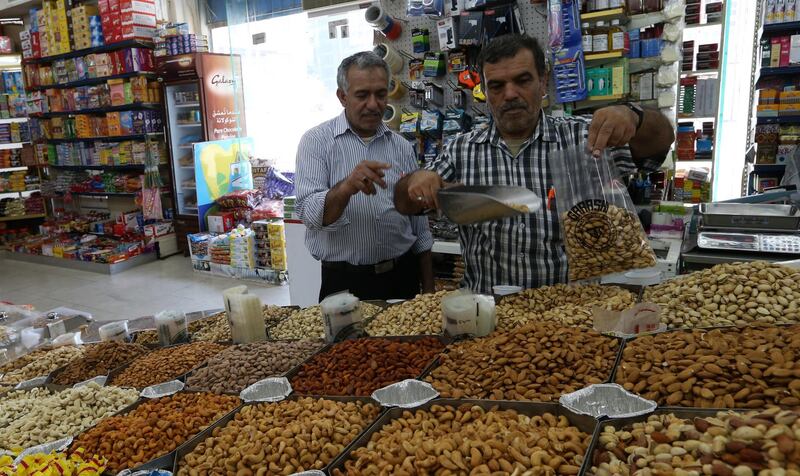US President Donald Trump issued a warning to international businesses on Tuesday, saying those working with Iran would be barred from trading with the United States.
Hours after a midnight deadline came into effect for a set of first-phase US sanctions, the president took to Twitter to state “the most biting” measures ever imposed were on the way. The announcement came 90 days after Washington withdrew from the 2015 nuclear deal but were met with European counter-measures designed to keep commercial links with Iran.
“Anyone doing business with Iran will not be doing business with the United States,” the US leader announced.
Yet the US leader accompanied the message with a renewed invite to his Iranian opposite number Hassan Rouhani to meet to discuss ways out of the confrontation. "I am asking for world peace, nothing less," he added.
The beleaguered Iranian leader is facing riots over corruption, food shortages, a collapsing currency and fast-rising inflation. The pair have traded insults directly since last month when Mr Trump threatened "consequences the likes of which few throughout history have ever seen". Mr Rouhani responded, "war with Iran is the mother of all wars".
Speaking on state television, Mr Rouhani dismissed Mr Trump’s offer. "If you're an enemy and you stab the other person with a knife, and then you say you want negotiations, then the first thing you have to do is remove the knife," he said. "They want to launch psychological warfare against the Iranian nation. Negotiations with sanctions doesn't make sense."
John Bolton, President Donald Trump's national security adviser, said the sanctions move was designed to put pressure on Iran to retreat from its support for international terrorism, military operations across the Middle East and a ballistic missile build-up.
Mr Bolton said Iran's leadership is on "very shaky ground," while also insisting economic pressure was not designed to overturn the government. "The policy is not regime change but we definitely want to put maximum pressure on the government," Mr Bolton said on Fox News. "The implications are already pretty profound. They’ll grow more profound in November."
_______________
Read more:
Donald Trump reimposes sanctions on Iran but is ready to meet Hassan Rouhani
Iran confirms holding war drills in Gulf
Iran preparing currency rescue plans as US sanctions return
Explainer: the collapse of the Iranian rial
_______________
Mike Pompeo, the US Secretary of State, has said behavioural change was Washington’s top priority in the setting a new policy direction. "They've got to behave like a normal country. That's the ask. It's pretty simple," he said.
The European countries ring-fenced their companies from any fallout from the sanctions move, adopting a new regulation to block sanctions enforcement.
The EU foreign affairs chief Federica Mogherini promised the EU "blocking statute" against US legal action would protect European companies that maintained connections with Iran.
"The European Union's updated Blocking Statute enters into force on 7 August to protect EU companies doing legitimate business with Iran from the impact of US extra-territorial sanctions," said a joint statement by Ms Mogherini and the foreign ministers of France, Germany and Britain.
Brussels is negotiating with Iran on other measures that would ensure it continues to abide by the deal and not resume its nuclear programme. "We want to show that we are still committed to the Iran agreement," a senior EU official said.
An impending second round of sanctions goes far beyond the dollar purchases, gold trade and auto parts targeted on Tuesday. These will restrict shipping and the oil and petrochemical trade with Iran from November 4.
On the streets of Iran, the pressure on the economy is already telling with economists predicting a 4 per cent plus drop in economic growth in 2018. "I feel like my life is being destroyed. Sanctions are already badly affecting people's lives. I can't afford to buy food, pay the rent," a Tehran construction worker said.
China and Russia, the other key parties to the 2015 deal, have also rejected the US move against Iran with Beijing earlier this month rebuffing a US plea to cut its oil orders.
China is Iran’s biggest customer for its exports and is the world’s top crude buyer. The country has seen a steady rise in the oil volumes it buys from Iran. The figure rose 26 per cent in July alone as Beijing absorbed more than one-third of Iran’s exports.
Global oil prices rose on Tuesday on concern sanctions could cut world supply, although the toughest measures targeting Iran's oil exports do not take effect for four more months. Brent crude oil futures were up 75 cents to $74.50 per barrel.






